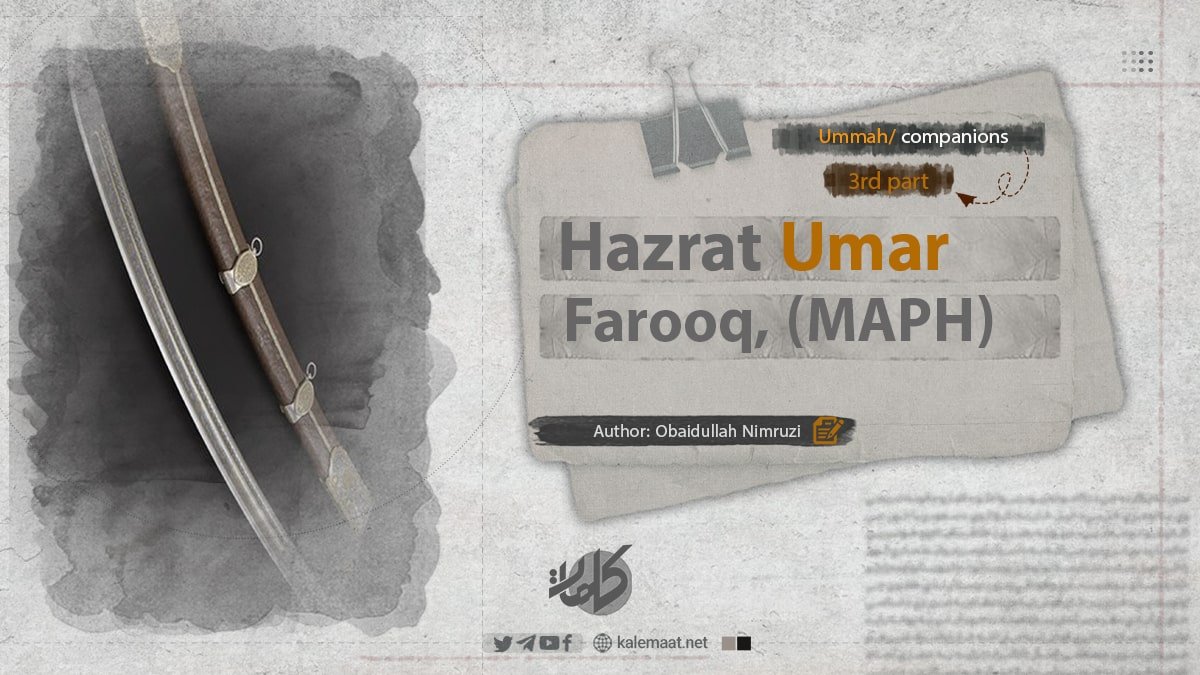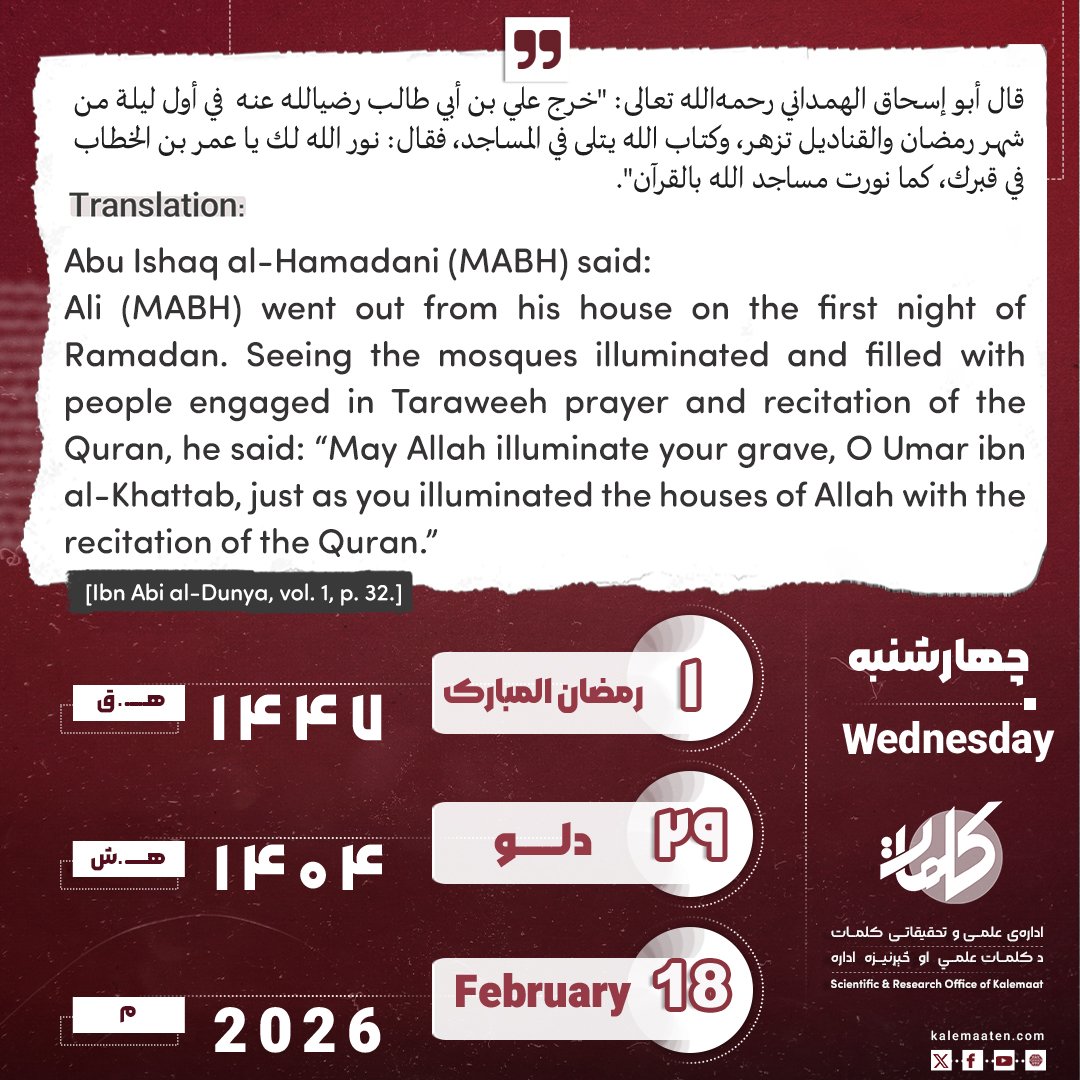
Author: Obaidullah Nimruzi
Hazrat Umar Farooq, (MAPH), (3rd part)
Expressing his position from the point of view of contemporary writers
Dr. Seyyed Amir Ali, in his famous book “History and Islam”, writes about this: “The death of Umar is a great loss and a great incident of Islam”; “Umar’s death was a great injury and disaster for Islam.” Also, in his other book “Soul of Islam”, he writes: “Umar became one of the strongholds of faith after converting to Islam, and the death of this great man at the hands of a murderer was undoubtedly an irreparable loss for the Islamic government.”
Petres Bostani, a Christian writer, writes: The reason for Umar’s martyrdom is not what historians have written; Rather, the non-Muslims had appointed this slave to kill him, thinking that after his death, the power of Islam would weaken, and the rule of Islam would end.
“French Professor Alexandre Mazas” writes about Hazrat Omar, may God be pleased with him: He is someone who did not leave his simple and ascetic life even during his caliphate, when he ruled over a large part of the world of that day.
Someone who did not eat enough food during the drought to sympathize with other Muslims, until his complexion and face turned dark.
The one who used to patrol the alleys and back alleys of Medina at night to disobey his Muslim affairs.
The one whom the representatives of the governments did not recognize when they saw his simplicity.
The one about whom the Messenger of Allah, may God bless him and grant him peace, says: “O Umar, you do not cross the road; unless Satan leaves that path and passes through another path.
“Sir William Mayur” writes: Umar Farooq, may Allah be pleased with him, is considered the greatest person in the Islamic state after the Messenger of Allah, may Allah bless him and grant him peace.
Through his intelligence and perseverance, he was able to subjugate the regions of Syria, Egypt and Persia to the power of Islam during these ten years. Since then, they are part of the domain of Islam. Despite the fact that he was the powerful ruler of a vast country; Frost never lost his composure and justice in general and minor matters. He didn’t like to call himself with great nicknames, other than the simple and normal one, which was “Arab Chief”. People from distant provinces came to meet the Caliph and the Amir of the Faithful and sought him out and asked the people of the mosque, while the Amir of the Faithful was sitting in the mosque in simple clothes among the people.
Professor Mehreen, a contemporary scholar, writes: Umar Farooq, may God be pleased with him, was an emperor who sat on the ground instead of a rich and jeweled throne, and instead of the luxurious clothes that flowed from the east and the west to Baitul Mal, his body was replaced by a patched garment that was the clothing of his most impoverished subjects. and instead of a golden crown full of precious jewels that were brought from Iran and Rome, he added a rough turban to his awe and glory, and he sat on an equal footing with the lowest subjects and considered an Abyssinian servant as his religious brother.
He was an emperor and he used to walk the streets of Medina at night to support the weak people, to take care of a widow, he wanted his subjects to live in Islam instead of bowing down to him, he was a teacher of orphans and a mourner of the poor and a conqueror of Rome and Iran.
“Encyclopedia of England” writes: Umar was a wise and broad-minded ruler and did a worthy service for Islam.
“Dr. Michael Hart” says: Omar’s works are genuine works; he was the only influential figure in the spread of Islam after Prophet Muhammad (PBUH).
Without his conquests, it seems unlikely that Islam would have been promoted as it is today everywhere.
Continues…



